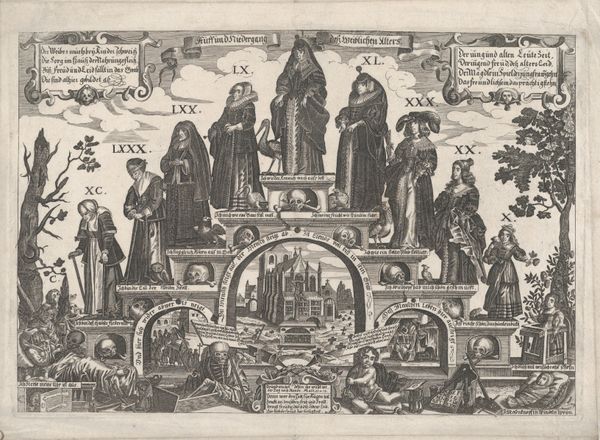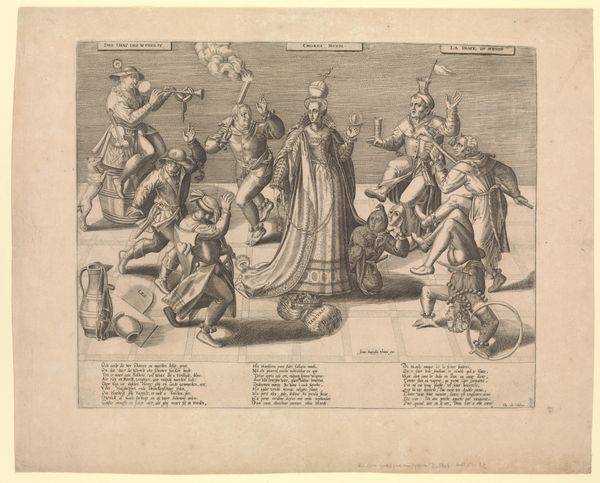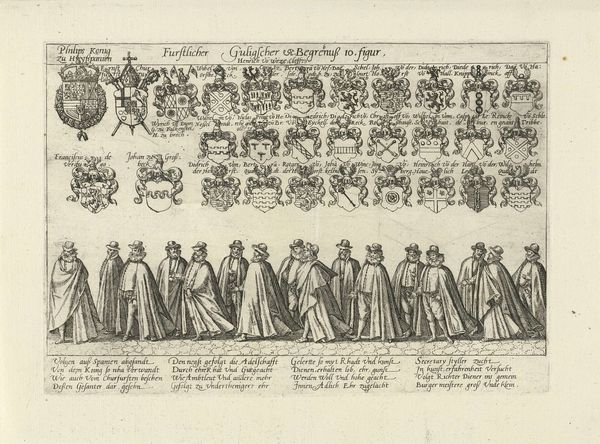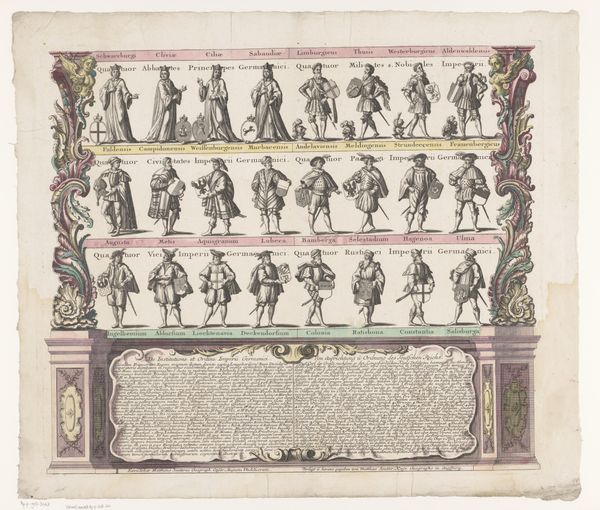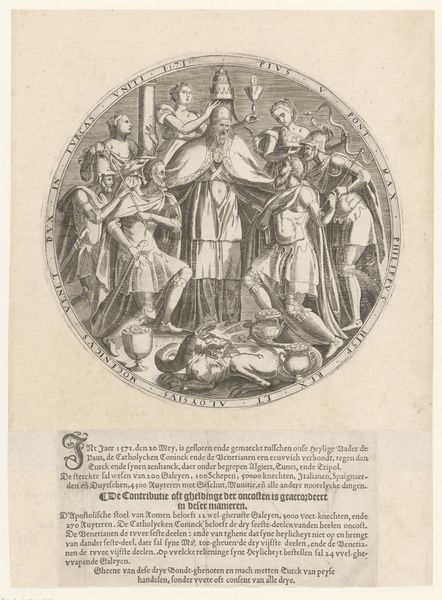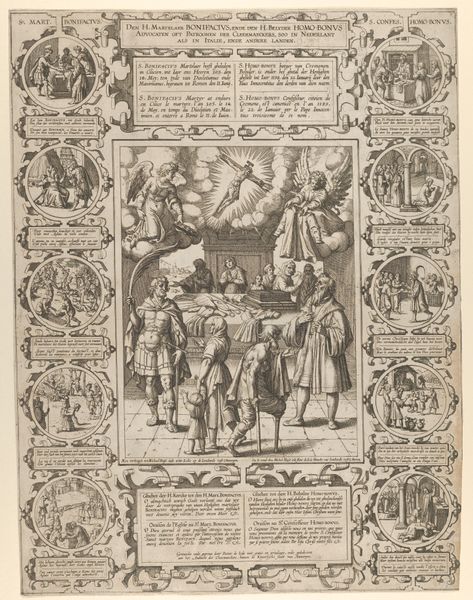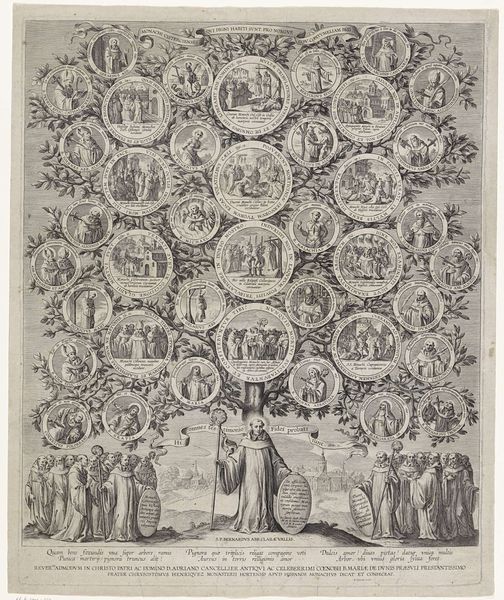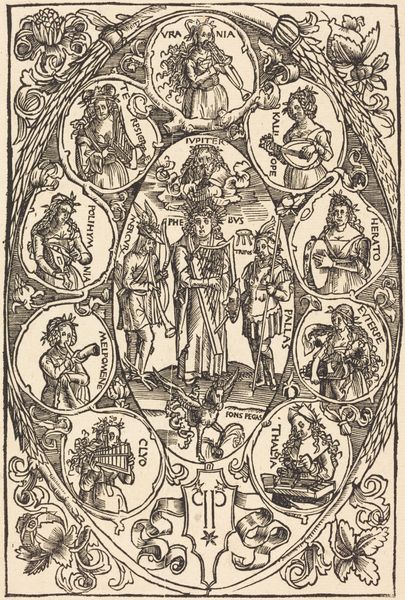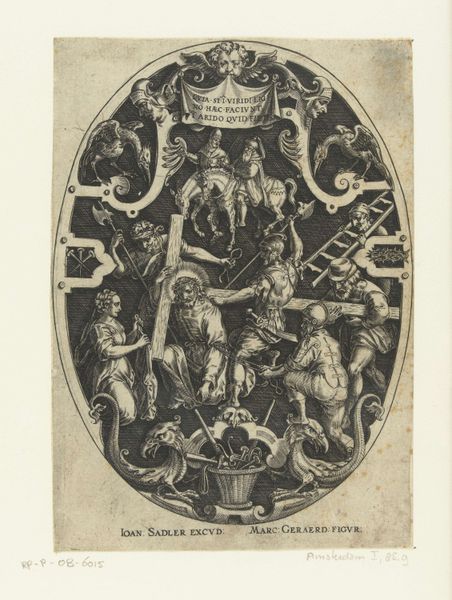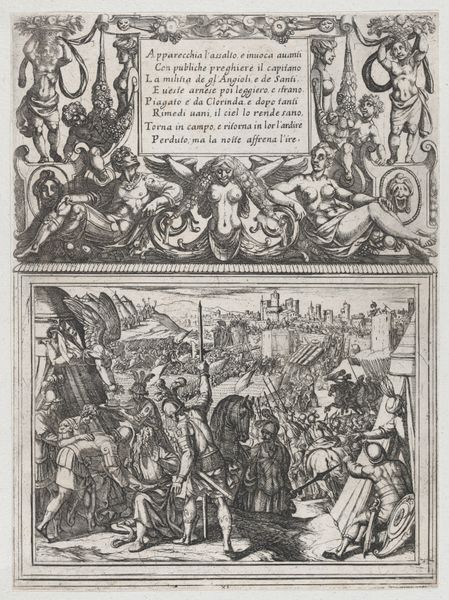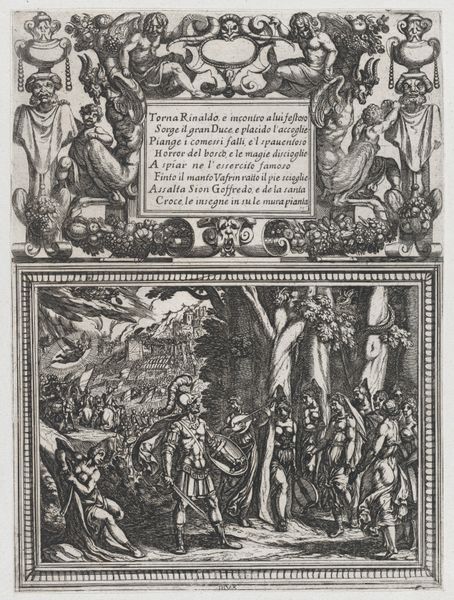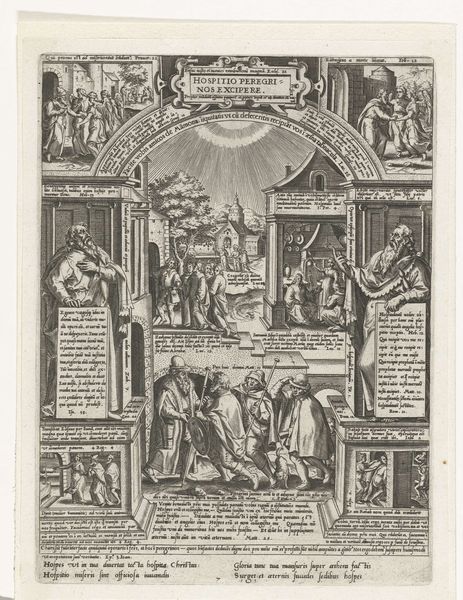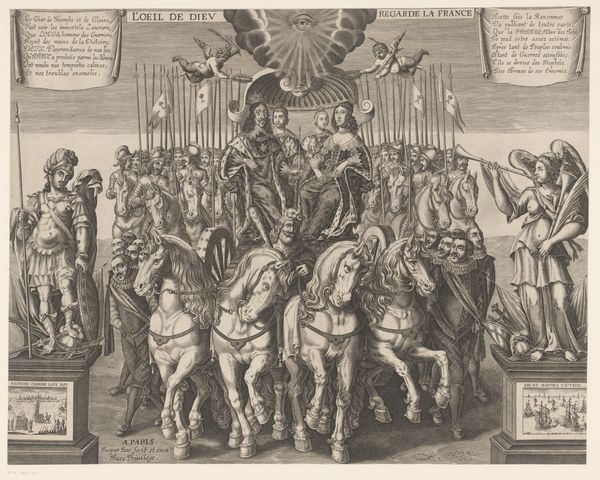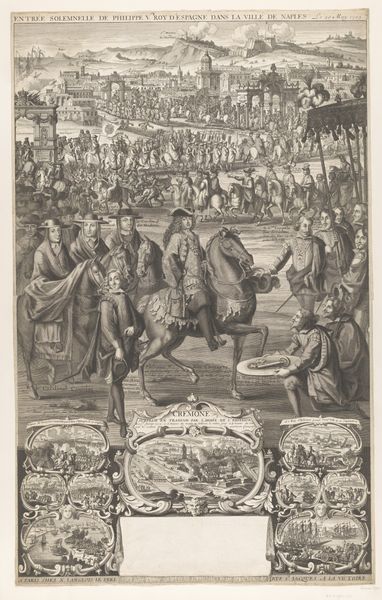
Overzicht van de hiërarchie in het Heilige Roomse Rijk (bovenste deel) 1688 - 1757
0:00
0:00
print, engraving
#
portrait
#
baroque
# print
#
geometric
#
history-painting
#
engraving
Dimensions: height 495 mm, width 578 mm
Copyright: Rijks Museum: Open Domain
This overview of the Holy Roman Empire's hierarchy, made by Matthaeus Seutter, displays power through symbols. Notice the prominent display of coats of arms, each a visual shorthand for lineage, land, and loyalty. They are not mere decoration but potent emblems encoding centuries of dynastic ambition. These heraldic devices remind me of the persistent human need to brand ourselves, a primal impulse visible even in ancient cave paintings. The eagle, a recurrent figure across many of these crests, appears throughout history, from the Roman Empire to modern nations, always signifying dominance and authority. Consider how these symbols have been adopted, adapted, and even inverted over time. A once-proud emblem of nobility might become a mark of shame in a revolutionary context, or evolve into something altogether different. The collective memory embedded in these symbols acts on our subconscious. Such images persist because they tap into deep-seated psychological needs for order, identity, and belonging. Like dreams, they are a repository of collective anxieties, aspirations, and memories. They return again and again.
Comments
No comments
Be the first to comment and join the conversation on the ultimate creative platform.
